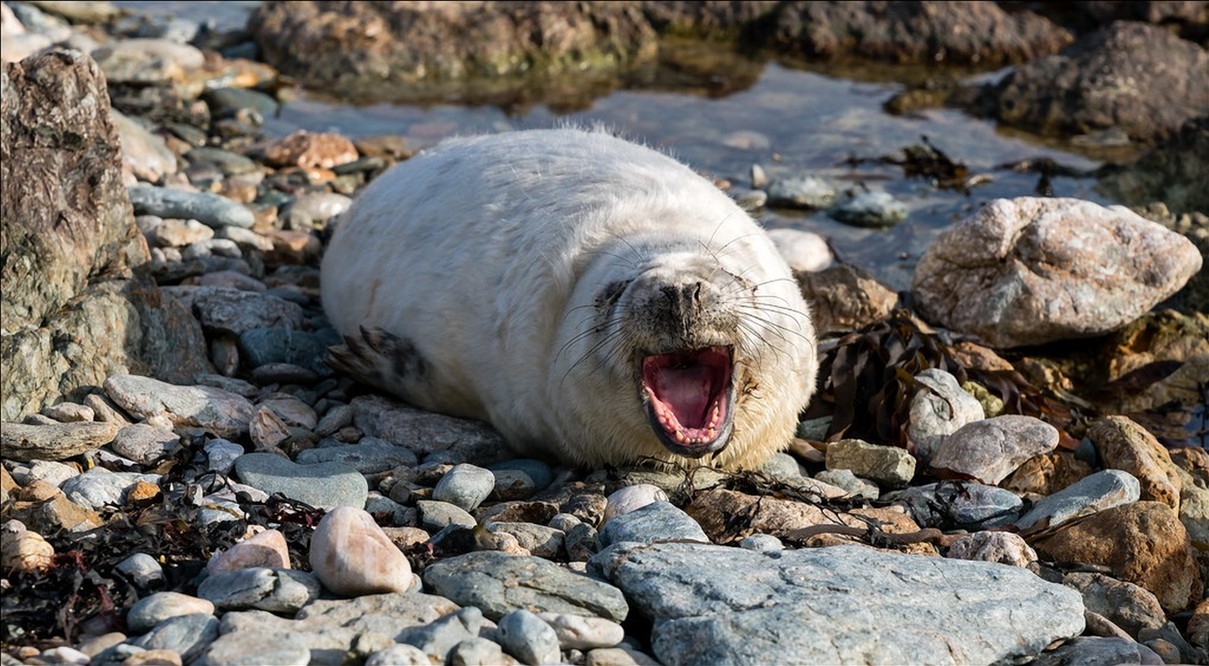Police launch initiative to teach tourists about protecting nature

Officers from the forces’ rural engagement and wildlife teams will take part in a number of action days to teach tourists the importance of keeping a distance and keeping dogs under control.
Visitors are being asked you to remember that any activity has the potential to cause disturbance to wildlife, if not conducted in a responsible and safe manner and to reduce disturbance to sensitive wildlife whilst on the water.
They are being advised too:
• Keep your distance: Keep a safe distance (at least 100m) from the cliffs, rafting seabirds and marine mammals, allowing space for animals to move away from you.
• No-wake speed: Motorised vessels and personal watercraft should travel at a no-wake speed within 300m of the cliffs or shore.
• Avoid enclosed spaces: All motorised and non-motorised vessels should avoid entering caves and travelling through archways where breeding seabirds or resting seals are present.
• Be aware: If an animal’s behaviour changes in response to your presence, move away quickly and quietly.
In the south of Wales, some rural engagement co-ordinators will be patrolling the coastline on land, marine units will do the same in the water, South Wales Police said.
Marine wildlife
Jenny Gilmer, assistant chief constable at South Wales Police, said: “We are fortunate to have miles of beautiful coastline in South Wales and an array of marine wildlife and seabirds who call it their home.
“I am delighted that we are launching Operation Seabird Cymru together with North Wales Police, Dyfed-Powys Police and Gwent Police.
“This will help protect habitats from wildlife disturbances and educate visitors to our coastline on how to behave responsibly around marine wildlife.”
The police forces will be working alongside the RSPCA and Natural Resources Wales, Wildlife Trust of South and West Wales, RSPB and Welsh Government.
Geoff Edmond, national wildlife co-ordinator at the RSPCA, said: “Every year, the RSPCA’s wildlife centres have to treat and rehabilitate a wide range of wildlife, including seals and seabirds, which have been injured or orphaned due to human disturbance.
“For many tourists it can be surprising and exciting to see marine mammals, including seals and their pups which will normally rest on the beach at various times of year, as well as ground-nesting birds which are usually resident between March to September.
“But as tempting as it is to approach them, we would respectfully ask that everyone stays at a distance and keeps their dogs on leads and under control.”
Support our Nation today
For the price of a cup of coffee a month you can help us create an independent, not-for-profit, national news service for the people of Wales, by the people of Wales.





Excellent.
This could be funded through a tourist tax.
Are there still volunteer national park wardens? I was always urging my dad to ‘get them’…
So now our Council Tax subvention to the Police is going to fund their new role as Wildlife and Nature Wardens? They will now be ‘policing’ on behalf of the ecological and ‘Green’ ideological agenda of such private bodies as the RSPCA and the RSPB. Meanwhile their ACTUAL policing role on behalf of tax-paying humans seems not to be making appreciable inroads on such unfashionable issues as burglary, crimes of violence or of drug-peddling and sex-grooming in society. The likes of the RSPB – and indeed private persons – can of course already report to the police any contravention of… Read more »